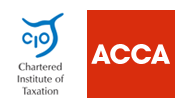Making the decision between becoming a limited company or a sole trader is one that shouldn’t be taken lightly. If you are in this situation, you should seek expert advice and think carefully.
All too often, people are faced with a VAT threshold of £85k turnover and automatically assume they ought to become a limited company. This is not always the case!
So, before you jump to a conclusion you may regret, let us share some key information about the difference between being a sole trader, and being a limited company.
What’s the difference between a limited company and a sole trader?
A sole trader is the simplest type of business structure which is probably why it is the most common. As a sole trader, you are essentially a self-employed person who is the sole owner of the business.
Meanwhile, a limited company has its own legal identity separate from its owners – whether that be one person or more – meaning as a business owner you only risk losing what you put into the company and not your personal assets.
What are the advantages and disadvantages of both?
The main advantage of being a sole trader is that it’s relatively simple to set up. This type of business also has greater privacy than a limited company as details are kept out of Companies House.
While these are some fantastic advantages, being a sole trader also has its disadvantages. As a sole trader you have unlimited liability meaning in the eyes of the law there is no difference between you as the business owner and the business itself meaning you are personally liable for any business debts. Not fun!
Alongside a higher personal risk, expansion opportunities are typically limited for sole traders as banks and investors tend to favour limited companies. Similarly, most customers prefer dealing with limited companies meaning you run the risk of restricting your potential market through being a sole trader.
One of the main advantages of being a limited company is once you’ve registered your company name, nobody else has the ability to use it. Sole traders on the other hand aren’t blessed with the same protection.
Additionally, as a limited company, you will only pay personal tax on the amounts you take out of the company which could be more tax efficient. It is however important to know that this is not always the case and as corporation tax is set to increase from next year, you really need to discuss this with your accountant before you make a decision as to how you are going to trade.
Unfortunately, where there are pros there are also cons. As a limited company, you have a large amount of legal responsibilities meaning it is in your best interest to hire an accountant to offer you that helping hand you so desperately need.
This also applies to a sole trader as, unless you understand the tax system, even the smallest trader can get into trouble trying to do it themselves!
As a limited company, business information such as company earnings are required to be shown publicly at Companies House. While some business owners may welcome the transparency, others may wish to avoid this however possible.
I’m still not sure which type of business I should be!
No matter how big or small your business, you need to have a legal structure in place. Most businesses choose to be a sole trader or a limited company, however it is important to be aware of the other options available to you.
Looking for advice?
There is no need to stress yourself out making this decision. You don’t need to decide on your own! After all, you wouldn’t expect someone buying a house to know the legal ins and outs.
Our team of qualified accountants are happy to help you make the right decision that will benefit both you and your business!
Give us a call on 01952 216872 or email us at info@kewaccountants.co.uk to get started.




